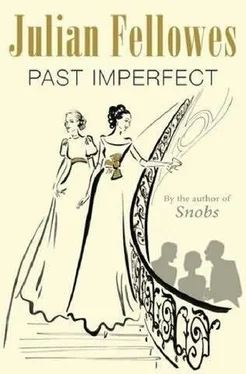That said, for those of us who witnessed what seemed then to be the end of everything, the 1970s had first to be negotiated before matters would start to improve. Much that was teetering came crashing down and there were dark days to be gone through. It seems strange to write it now, when all is changed, but to us, then, Communism was here to stay. In fact, most of us privately, if silently, believed that world Communism would eventually be the order of the day and we set about enjoying ourselves with no expectation of a long future for our way of life, dancing to the band on the increasingly steep deck of the Titanic. The Sixties had come and gone by that stage, with their promises of free love and hair-worn flowers, but these attractive notions did not, in the event, compose the legacy of that troubled era. The trail that was left was not of peace and rose buds, but of social breakdown, and certainly some people who lost their currency value in those bleak years, never regained it.
So it wasn’t a complete surprise when I dialled Dagmar’s number and asked for the Princess, to be told that ‘Lady Holman’ was in the drawing room. I had prepared what I intended to say. My excuse was a charity ball that I’d been given to chair for Eastern European refugees. Some years before I’d written a moderately successful novel set principally in post-war Romania, which had inevitably taken me into this territory, and I was quite interested by what was happening in that stormy land. At last a voice came on the line. ‘Hello?’ she said. ‘Is it really you?’ She was still the diffident Dagmar of old, but somehow she sounded even more meek. I explained about the cause. ‘I’m supposed to come up with some ideas for the committee and I immediately thought of you.’
‘Why?’
‘Wouldn’t a Balkan princess look rather relevant? So far, all I’ve got is two actors from a soap opera, a TV chef whom no one’s heard of and a bunch of dowagers from Onslow Gardens.’
She hesitated. ‘I don’t really use that name now.’ There was a sorrow in her voice, though whether it was a momentary stab of nostalgia or a general critique of her present existence I could not, of course, tell.
‘Well, even if you’re listed as Lady Holman, everyone will know who you are.’ One says these things and I said this, although, as is often the case in such circumstances, I did not believe it to be true.
‘Well…’ She paused awkwardly. I had hoped that William’s success in the City would have bolstered her confidence, but the reverse seemed to have happened.
‘Can we discuss it? I’m going to be driving very near you next week. Could I possibly look in?’
‘When?’
Once more, as with Lucy Dalton, I sensed a trapped animal searching for a route out, scanning the net for a possible tear, which I firmly closed off with my next speech. ‘It entirely depends on you. I’ve got some stuff to do in Winchester but I can easily fit it round your diary. What day would suit best? It’d be such fun to see you again after all these years.’
She was enough of a lady to know when she was caught. ‘Yes, it would. Of course it would. Why not come for some lunch next Friday?’
‘Will William be with you?’
‘Yes. He doesn’t really like my entertaining when he’s not here.’ This sentence had escaped her mouth before she fully grasped its ugly, bullying significance. The words seemed to reverberate down the line between us. After a silent pause she attempted to round off its sharp edges: ‘He gets so jealous when he finds he’s missed seeing people he likes. I know he’d love to catch up with you.’
‘Me, too,’ I answered, because I had to. I was not quite clear how I would carry out my mission if William was too controlling to allow us a moment together, but there was nothing I could do about that. ‘I’ll be with you on Friday, just before one.’
Bellingham Court was a real house. It was about five miles from Winchester and not perhaps quite far enough from the motorway, but it was a genuine Elizabethan schloss, with high mullioned windows and corbelled ceilings and panelled great chambers and whispering passages, a thoroughly satisfactory ego-puffer of a place. As I turned in through the neatly painted gates, and drove down the long, tended and impeccable drive, it was easy to see it had been the subject of a recent, and massive, restoration programme. I parked in the wide forecourt, bordered by two broad, shallow parterres of water, edged in new and expensively carved stone, and before I had time to ring the bell the door was opened by a middle aged woman in sensible shoes, whom I took, correctly, to be the housekeeper. She led me inside.
The money here was not comparable to Damian’s Croesus-like hoards. The Holmans were very rich, that was all, not super-duper-Bill-Gates-unbelievably rich. Just rich. But they were rich enough, by heaven. The hall was large, stone-flagged, and off-white, with a dark, carved screen at one end and some wonderful furniture. These items had been selected as contemporary with the house, which I later discovered was not the theme in the other downstairs rooms, the designer having decided that Tudor artefacts are easy to admire but hard to live with. The style had therefore been confined to the hall, with a few pieces in the library. There was in this a kind of premeditation, a sort of thought-out pattern that, just as in Damian’s Surrey palace, was oddly undermining to any sense of country living. Proper country houses have a kind of randomness, objects and furniture are deliberately thrown together, survivals of many other houses, which have somehow all ended up there in a kind of chic higgledy-piggledy. Nor is this a skill unknown to many designers who, given ample time and money, can rustle up a house that looks as if the family have owned it since 1650, when in fact they moved in the summer of the previous year. But here, at Bellingham, this casual, comfortable elegance had not been achieved. In fact, there was a slightly disconcerting quality to the whole house that I cannot exactly describe, as if it had been prepared for an elaborate party to which I had not been invited. Had I been told it had been dressed for a photo shoot and I wasn’t to touch anything, it would not have surprised me. The pictures were almost all large, full, or three-quarter- length portraits, over-cleaned and a little too shiny. They had a foreign feel to them and I squinted at some of the name plaques on the most important ones, as I passed. ‘Frederick Francis, 1st Grand Duke of Mecklenburg-Shwerin, 1756-1837’ said one, while another announced ‘Count Felix Beningbauer gennant Lupitz, 1812-1871, and his son, Maximilian.’
‘You see we are very pro-Europe in this house.’ The voice startled me and I looked up to see a tiny figure standing at the far end of the hall, looking more like a boy scout on bob-a-job week than a princess in late middle age. Of course, I knew it was Dagmar because her stature meant it had to be, but I could not at first find her in the face I was presented with. Her hair was grey, though as flat and lank as it had always been, and at last I recognised her wobbling, tremulous, anxious lips, but not much else of her youthful appearance had survived. Her eyes were still huge, but sadder now and, despite our luxurious setting, it seemed to me that for her, life had been a bumpy ride. We kissed, a little gauchely, two strangers pecking at each other’s cheeks, before she led me into the main drawing room, a fine, light chamber, but again with a synthetic air. It was the perfect mixture of Colefax chintz and antiques, Georgian this time, beautifully chosen as individual items but with no coherence as a whole. There was more of the splendid, European parade on the walls.
I indicated a couple of them. ‘I don’t remember you having all these in Trevor Square. Or were they in storage?’ We knew, without saying, that they formed no part of the provenance of Squire William de Holman.
Читать дальше












